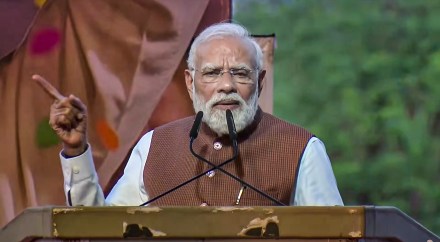The Emerging Science, Technology and Innovation Conclave (ESTIC 2025) opened at Bharat Mandapam in Pragati Maidan, bringing together experts from India and abroad. The event was organised by the Department of Science and Technology with support from the Office of the Principal Scientific Adviser.
PM Modi’s comment
Prime Minister Narendra Modi inaugurated the conclave alongside Nobel Laureate Professor Andre Geim. Modi restated the government’s long-term development goals, saying, “The global order is witnessing a major shift. The pace of change today is not linear but exponential. With this mindset, India is advancing in all aspects of emerging science, technology, and innovation with constant focus and commitment. We have established the National Research Foundation to promote research and innovation in our universities. Alongside, we have launched the Research Development and Innovation Scheme with a budget allocation of Rs 1 lakh crore.”
Research across AI
Amrita Vishwa Vidyapeetham presented research across AI, traditional medicine, and disaster management. Speaking on an AI panel, Vice Chancellor Prof. P. Venkat Rangan said, “Artificial Intelligence enhances human intelligence and addresses large-scale societal challenges such as healthcare delivery, disaster prediction, education, and sustainable development. At Amrita, we aim to make sure that AI research not only advances technology but also improves humanity through ethical and compassionate application.”
Sasangan Ramanathan, Dean Academics and Dean – Faculty of Engineering, added, “Government’s launch of the Research, Development, Innovation scheme fund is a welcome encouragement towards Indian companies investing in R&D, thereby promoting product development in India.”
P. Rammanohar of the Amrita Centre for Advanced Research in Ayurveda highlighted work integrating traditional and modern systems. “Amrita’s approach connects traditional knowledge systems with modern science. At ESTIC 2025, our research showed how evidence-based Ayurveda and modern technology can come together to create innovative healthcare models for preventive and personalised medicine.”
Amrita’s Landslide Early Warning System was among the key technologies displayed. The IoT-based system uses wireless sensors and real-time analytics to detect early signs of landslides. First deployed in Munnar, Kerala, where it predicted landslides in 2020, it has since been implemented in Chandmari, Sikkim, with more than 200 sensors across 150 acres, and is now being expanded to Gajapati district in Odisha.
The system tracks rainfall, soil moisture, and ground movement to provide alerts to authorities, strengthening disaster preparedness in high-risk regions.
